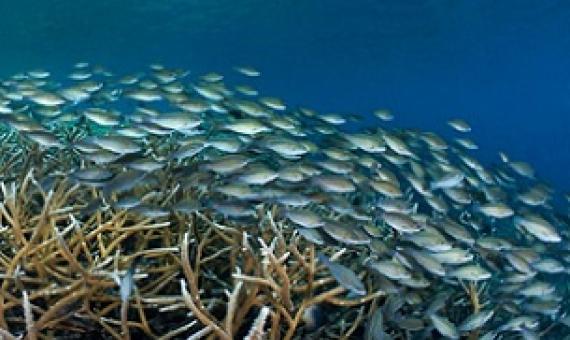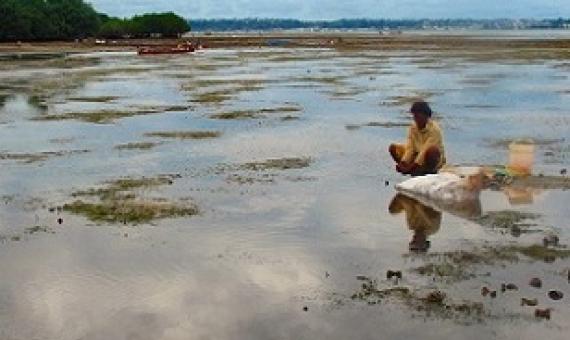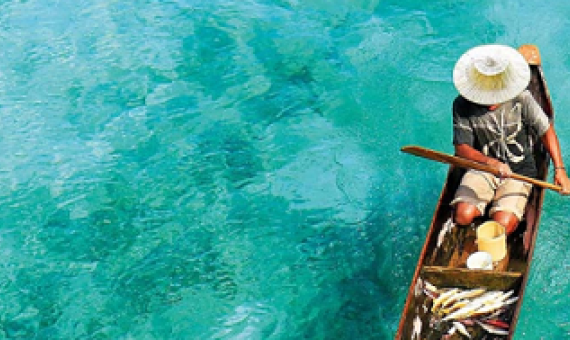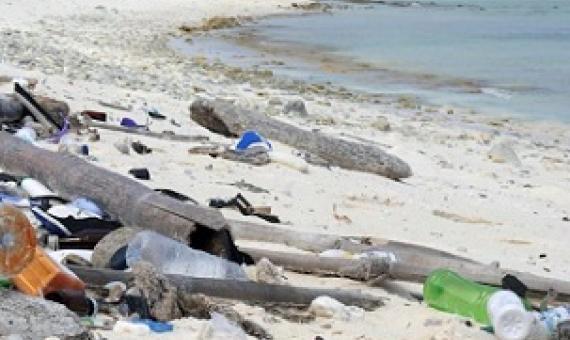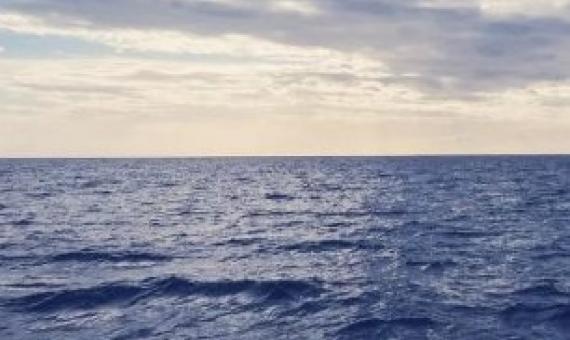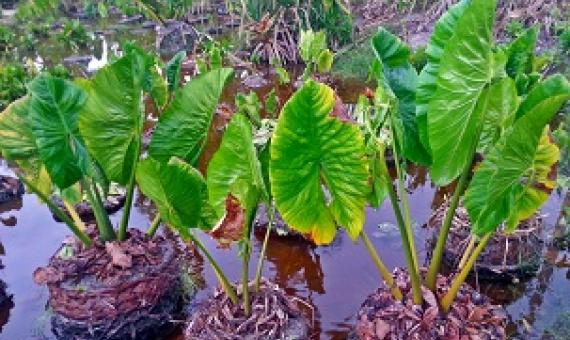A new study of the Mesoamerican Reef in the Caribbean found that marine protected areas (MPAs) are not only beneficial for conservation but can also lift up the socioeconomic status of the local and Indigenous communities that live near them.
A study found that Fijian communities engaged in the country’s locally managed marine areas network, known as FLMMA, exhibited strengths in the mechanisms believed to advance conservation efforts, such as community participation in decision-making and financial support.
Protecting the ocean and providing livelihoods and food security do not have to be mutually exclusive.
In the middle of the vast Pacific Ocean, straddling the equator, is the picturesque atoll nation of Kiribati. Around 120,000 people, spread across 21 atolls, call the small island state home.
In seven to eight years, the Pacific will no longer be able to rely on the ocean for food security or as a source of livelihood as it does today because of plastic pollution. Experts say that by 2030, up to 53 million metric tonnes of plastic pollution will annually affect the livelihoods of
Ministries of Agriculture Fisheries and Environment ( MAFE) Steven Victor said tuna will contribute to Palau in another important way aside from the sale of licenses to fishing operators-increasing food security.
The Role of Coral Reef Small-Scale Fisheries for Addressing Malnutrition and Avoiding Biodiversity Loss
Integrated management of coral reef foods, as a highly diverse set of blue foods, can contribute to addressing the dual challenges of malnutrition and biodiversity loss. Advances in nutrition research have made it possible to understand nutritional benefits on a species by species basis, and to make comparisons with benefits derived from land-based foods.
Safeguarding Seafood Security, Marine Biodiversity and Threatened Species: Can We Have Our Fish and Eat It too?
The ocean contains an abundance of biodiversity that is vital to global food security. However, marine biodiversity is declining. Marine protected areas and marine reserves have been used to protect biodiversity, conserve threatened species and rebuild exploited species, but are perceived as restrictive to fishing, which has slowed progress towards ocean protection targets. Here, we perform a spatial prioritisation of the ocean to protect biodiversity, threatened species and food security.
Conserving marine biodiversity, avoiding species extinction and maintaining food security from wild capture fisheries can all be achieved simultaneously if a global, non-regionalized approach to marine spatial management is undertaken by the signatories of IUCN Resolution 50, which calls for the
In Solodamu, a village on the craggy northern coastline of Fiji’s densely forested, sparsely populated Kadavu Island, Suliasi Lau looks back at the COVID-19 lockdown of early 2020 with a note of nostalgia. “It was a beautiful time,” he says.

